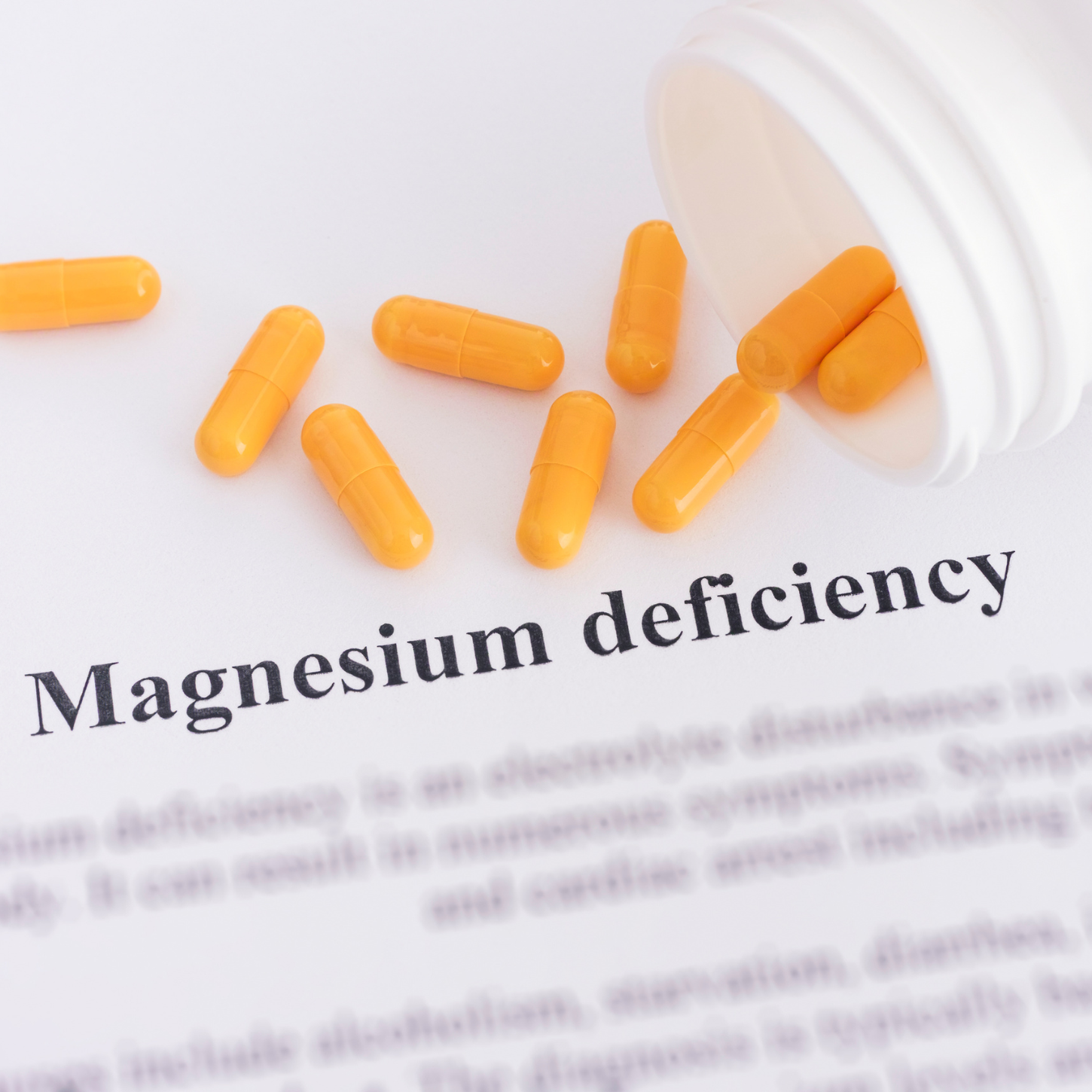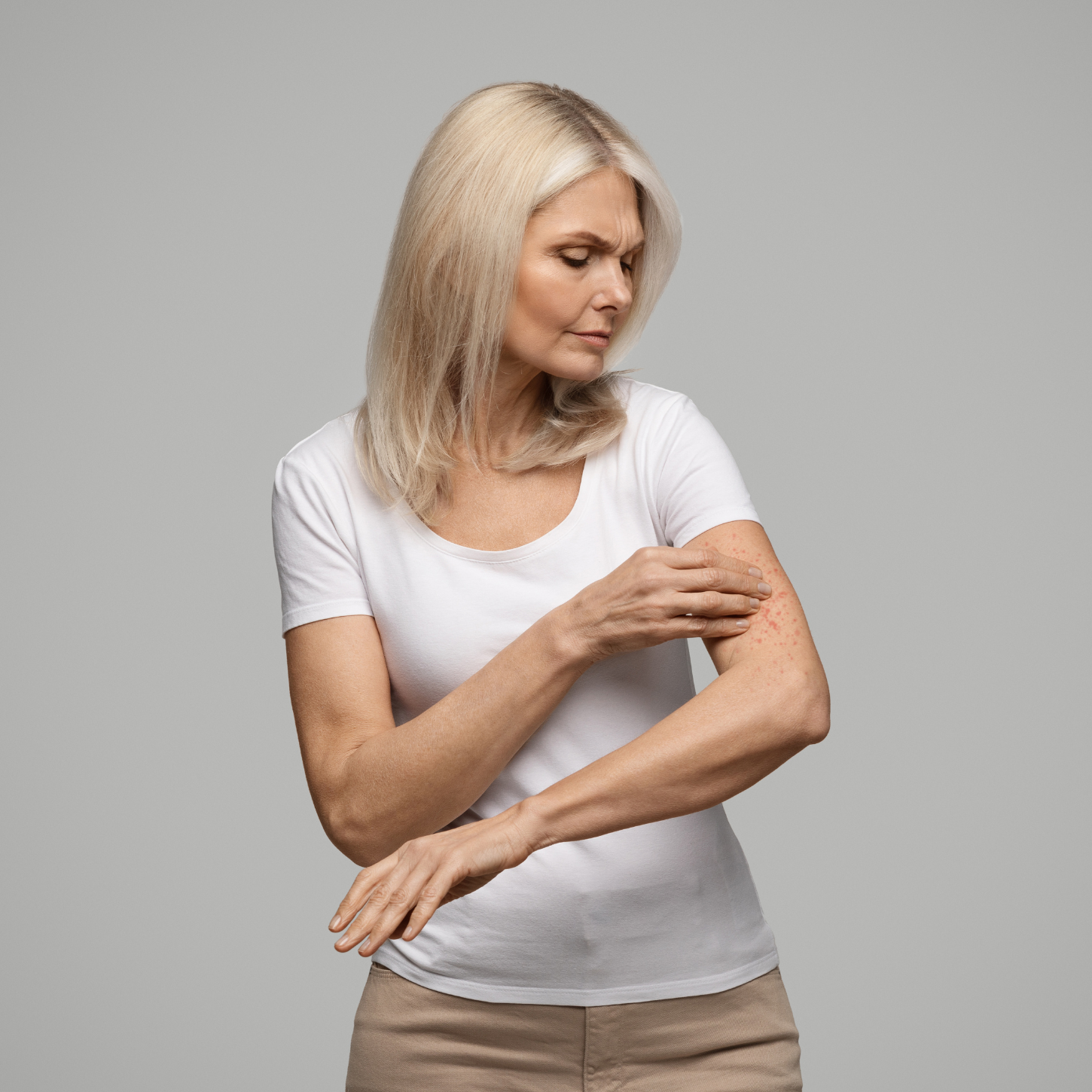Welcome back to our journey into understanding and healing psoriasis. In part 1 of this series, we discovered that psoriasis isn't just a skin condition—it's deeply connected to what's happening inside your gut.
We explored how chronic inflammation, environmental triggers, and leaky gut syndrome can fuel those frustrating flare-ups and why conventional treatments often fall short—offering temporary symptom relief rather than true healing.
Now, it's time to turn this knowledge into action. We’re going to move beyond managing symptoms and dive into natural, science-backed strategies that address psoriasis at its root. By supporting your gut, calming inflammation, and nourishing your body from within, you can take meaningful steps toward long-term relief and healthier skin.
If you’re ready to take a holistic, whole-body approach to healing psoriasis, keep reading.
Ready to address your gut health and inflammation issues? Discover our favorite supplements and our latest releases below:
Table Of Contents:
Diet: The Foundation of Healing
What you put on your plate directly impacts both your gut health and inflammation levels. Think of food as information—every bite sends signals throughout your body, either promoting inflammation or helping to calm it. Let's start by identifying the foods that might be working against your healing efforts.
Foods that can trigger inflammation
While everyone's triggers can be different, research has identified several common culprits that tend to contribute to psoriasis flare-ups:
-
Gluten & wheat – Many with psoriasis have undiagnosed gluten sensitivities, and some studies even suggest a link between celiac disease and psoriasis.
-
Dairy – Conventional dairy products can be highly inflammatory and can aggravate both the gut and immune system. The proteins in dairy, particularly casein, can trigger immune responses and increase inflammation throughout the body.
-
Eggs – The proteins in eggs, particularly the whites, can trigger immune reactions in some individuals.
-
Soy – A common allergen that may contribute to inflammation and disrupt gut health.
-
Alcohol – This is a triple threat for psoriasis sufferers. It weakens the gut barrier, increases toxin absorption and inflammation, and impairs liver function. Additionally, alcohol causes the release of histamine, which may play a role in the disease process of psoriasis.
-
Red meat – High consumption of red meat, especially if processed, can increase inflammatory markers in the body. The saturated fats and advanced glycation end products (AGEs) formed during cooking can trigger inflammatory responses and potentially worsen psoriasis symptoms. Also, dietary heme contained in red meat can lead to gut dysbiosis and systemic inflammation including in the skin.
-
Processed foods and sugar – These are double trouble for psoriasis sufferers. Processed foods often contain artificial additives, preservatives, and refined carbohydrates that promote inflammation. High sugar intake leads to blood sugar spikes, increasing inflammation and potentially disrupting gut barrier function. Additionally, these foods typically lack the nutrients necessary for healthy skin and immune function.
-
Acidic foods – Foods with high acid content like citrus fruits, tomatoes, and vinegar-based products may trigger flare-ups in some individuals. While these foods can be healthy and anti-inflammatory for many people, they can irritate the gut lining in sensitive individuals, potentially increasing intestinal permeability and inflammation.
Foods that reduce inflammation
Instead of focusing solely on what to eliminate, let's talk about the foods that can actively support your healing journey. These foods work by reducing inflammation, supporting gut health, and providing the nutrients your skin needs to repair itself:
-
Eat the rainbow – A plant-rich diet packed with vegetables, fruits, gluten-free grains, nuts, and seeds provides essential antioxidants and phytonutrients to fight inflammation.
-
Omega-3 fatty acids – Found in flaxseeds, chia seeds, walnuts, avocados, and algae oil, these healthy fats help modulate inflammation and support skin barrier function.
-
Fermented foods – Fermented foods such as sauerkraut, kimchi, and coconut yogurt provide beneficial bacteria that support gut health and immune function.
-
Hydration – Adequate hydration keeps skin moist and supple, reducing dryness and irritation associated with psoriasis. Proper hydration aids in flushing out toxins from the body, reducing the burden on the skin and potentially lowering the inflammatory response associated with psoriasis. Aim for at least 8 glasses (64 ounces) of water daily, more if you are active or live in a hot climate.
-
Intermittent fasting – Research suggests that intermittent fasting may help improve gut barrier function and reduce inflammation. During fasting, anti-inflammatory cytokines are increased, and T-cell activation is reduced.
Looking to heal your inflammation? Take the first step with our Inflammation Solution masterclass.
Lifestyle Strategies to Soothe Psoriasis
Beyond diet, lifestyle choices play a significant role in reducing inflammation and supporting skin healing. Let's explore evidence-based practices that can support your healing journey.
Far-infrared sauna
Heat therapy from infrared saunas helps detoxify the body, boost circulation, and lower systemic inflammation.
Stress management
Remember how we discussed the vicious cycle of stress, gut health, and psoriasis in Part 1? Here's how to interrupt that cycle:
-
Mindfulness and meditation - Even 10 minutes daily can help reduce inflammatory markers in the body
-
Deep breathing exercises - Practice diaphragmatic breathing to activate your parasympathetic nervous system
-
Gentle movement - Yoga, tai chi, or walking in nature can reduce stress while supporting lymphatic drainage
-
Regular sleep schedule - Aim for 7-9 hours of quality sleep to support immune function and skin repair
Therapeutic baths
Soaking in a warm bath infused with healing ingredients can help soothe irritated skin:
-
Epsom salts or Dead Sea salts – These salts reduce inflammation, improve skin barrier function, and enhance skin hydration. Simply adding a few handfuls to a warm bath can help alleviate itching and discomfort.
-
Oatmeal baths – Oatmeal can help calm itching and irritation, and moisturize the skin. Simply add one cup of dry oats to warm bath water, ensuring the water is not too hot to avoid drying out the skin further.
-
Apple cider vinegar (ACV) – May help to restore skin pH and reduce flaking and itching however, more research is needed to confirm its effectiveness. Use organic ACV and always dilute it properly. Never apply to broken skin or open plaques.
Natural Topical Treatments
Instead of relying on harsh steroid creams, consider these natural alternatives:
-
Oregon grape – Contains berberine, which has antimicrobial and anti-inflammatory properties. It can also help reduce the proliferation of skin cells.
-
Aloe Vera – Provides deep moisturization while reducing inflammation. Look for pure, organic gel without added fragrances.
-
Vitamin E – Supports skin healing and reduces oxidative stress. Can be applied directly or mixed with other natural oils.
-
Capsaicin – Derived from chili peppers, it can help reduce itching and inflammation by blocking pain signals. Start with small amounts to test sensitivity.
-
Boswellia – Boswellia has a long history of medicinal use in natural practices to treat various chronic inflammatory skin disorders. It is a powerful anti-inflammatory, inhibiting enzymes that drive inflammation in psoriasis.
Supplement Support: The Extra Edge
While diet and lifestyle are the foundation of healing, certain supplements can provide additional support to reduce inflammation and improve gut health.
Psoriasis is often associated with low vitamin D levels. This essential nutrient regulates immune function, reduces inflammation, and promotes skin cell repair. Research shows that maintaining adequate vitamin D levels may decrease the frequency and severity of psoriasis flare-ups.
Vitamin A supports healthy skin cell turnover and immune function. It also helps to reduce excessive skin growth and inflammation.
A plant-based alternative to fish oil, algae oil provides anti-inflammatory omega-3s that support skin and immune health. They can help alleviate symptoms like redness, itching, and scaling in psoriasis.
Turmeric is a powerful ally in the treatment of psoriasis, thanks to its powerful anti-inflammatory and antioxidant effects. Curcumin, the active ingredient in turmeric, works by targeting specific inflammatory pathways in the body, essentially helping to "turn down" the immune system's overactive response that triggers psoriasis flares. When supplementing with turmeric, look for high-quality formulations that include black pepper extract (piperine) that enhance curcumin’s absorption.
Probiotics can help restore the balance of healthy bacteria in your gut, which in turn supports your immune system. Studies have found that people with psoriasis often have an imbalance in their gut bacteria. Taking specific probiotic supplements, especially strains like Bifidobacterium infantis 35,624 and Lactobacillus pentosus GMNL-77, may help improve psoriasis symptoms by promoting a healthier gut environment.
The Journey to Healing: Your Path Forward
Psoriasis isn’t just about what’s happening on your skin—it’s a reflection of what’s happening inside your body, particularly in your gut. By addressing gut health, reducing inflammation, and making mindful lifestyle changes, you can support your body’s natural healing process and break free from the cycle of flare-ups.
Think of this journey like building a house: quick fixes are like temporary patches, but this holistic approach is about laying a strong foundation and creating an internal environment where your body can heal itself. Every positive change you make, no matter how small, adds another brick to that foundation.
While these natural approaches can be powerful, they work best when implemented as part of a comprehensive treatment plan. Always keep your healthcare providers informed about changes to your routine, especially regarding supplements or significant dietary modifications.
Ready to start your healing journey? Remember: every step forward, no matter how small, is progress toward lasting health.
Shop Goodness Lover’s inflammation-fighting supplements and masterclasses below:
















What Do You Think? Comment Below: